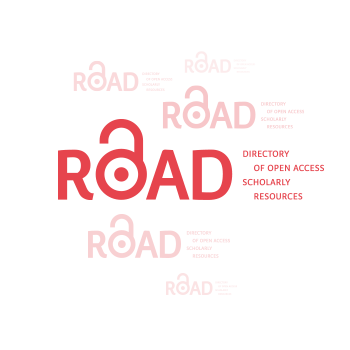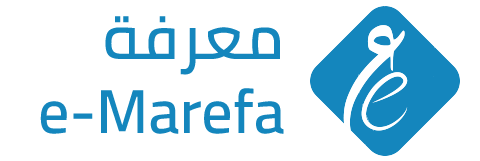Artificial Intelligence Techniques and Their Role in Enhancing the Competitive Advantage of Palestinian Schools
DOI:
https://doi.org/10.59994/pau.2024.2.120Keywords:
Artificial Intelligence, Competitive Advantage, Palestinian SchoolsAbstract
This study aimed to identify artificial intelligence (AI) technologies and their role in enhancing competitive advantage in Palestinian schools. Researchers used a sequential explanatory design, conducting unstructured interviews with experts to develop the questionnaire, followed by structured interviews to interpret the results. A simple random sample of 272 teachers from the Al-Hussein Educational Cluster in Hebron was selected. The study revealed a statistically significant relationship between AI technologies and competitive advantage in the schools. Key areas for improvement included the quality of educational services, creativity, innovation, responsiveness to teachers' needs, and efficiency. Recommendations included increased investment in digital infrastructure, teacher training, and specialized AI research and development programs. The study also emphasized strategic planning, data protection, stakeholder cooperation, and clear ethical policies. Effective use of AI was concluded to significantly enhance the competitiveness and quality of education in Palestinian schools. This study is a valuable scientific contribution in the field of enhancing competitive advantage. Its results indicate the importance of artificial intelligence technologies in enhancing competitive advantage in Palestinian schools.
Downloads
References
Abd Alghafoor, S. (2015). Knowledge management requirements and their role in achieving competitive advantage in the universities of the Gaza Strip. Master's thesis, Al-Aqsa University.
AbdAlNoor, A. (2015). Basics of artificial intelligence. Dar Al-Fasl Saudi Cultural House.
Abed, A. (2017). A proposed model to raise the competitiveness of King Saud University in light of the standards of international university classifications. International specialized educational journal. 6(3), 306-327.
Al Dhahouri, N. (2022). The Impact Of Artificial Intelligence On The Performance Of Universities: Field Study On Theoretical And Applied Colleges At Ain Shams University. Ain Shams University, Egypt.
Almalki, W. (2023). The Role of Artificial Intelligence Applications in Enhancing Educational Strategies in Higher Education (Literature Review). Journal of Educational and Psychological Sciences (JEPS). 7(5), 93-107.
Al-Muraikhi, M. (2023, 06 15). Improving the administrative performance of secondary school principals in Artificial Intelligence. Journal of Arabian Peninsula Centre 2(17), 66-95.
Creswell, J. (2016). Research design: Qualitative, quantitative, and mixed methods approaches. (5th ed.). Sage publications.
Fadli, S. (2018). How the mind works in humans. Aseer Al Kutub Publishing House, Egypt.
Fahimirad, M., & Kotamjani, S. (2018). A Review on Application of Artificial Intelligence in Teaching and Learning in Educational Contexts. International Journal of Learning and Development, 8(4), 106-118. https://doi.org/https://doi:10.5296/ijld. v8i4.14057
Hajira, S. (2018). The role of artificial intelligence in managing the electronic customer relationship of the Algerian Popular Credit. Academy Journal for Social and Human Studies. (1)20,81-90.
JabaAllah, A., Murghini, Z., & Muhamadi, A. (2021). The role of artificial intelligence in improving competitiveness in economic enterprises - a field study on the Condor Foundation in Algeria. Master's thesis, Shahid Hama Lakhdar University in El Oued.
Jozi , N., & Bouzid , M. (2022). The impact of applying artificial intelligence and emotional intelligence on the quality of decision-making - an applied case study at the Bank of Agriculture and Rural Development. Master's thesis, Ibn Khaldun University - Tiaret.
Mohammed, A. (2020). The impact of administrative applications of artificial intelligence on the competitive advantage of business organizations by applying it to commercial bank branches in Mansoura. Scientific Journal of Financial and Commercial Studies and Research, 1(1), 191-239.
Mutiri, A. (2019). Artificial intelligence is an input for developing educational decision-making in the Ministry of Education in the State of Kuwait. Journal of Scientific Research in Education, 11(10), pp. 573-588.
Norvig, P., & Russell, S. (2021). Artificial Intelligence: A Modern Approach. Pearson Education, Inc.
Porter, & Michael, E. (2018). Competitive Strategy: Techniques for Analyzing Industries and Competitors. The Free Press.
Qarni, H. (2017). Developing the admission policy in Saudi universities to achieve competitive advantage in light of global experiences. Phdl thesis, Imam Muhammad bin Saud Islamic University, Kingdom of Saudi Arabia.
Rowais, F. (2021). Artificial intelligence and its role in enhancing the competitiveness of educational institutions: a theoretical approach. Arab Journal of Quality in Education. 8(2), 1-62.
Said, K. (2015). Knowledge management requirements and their role in achieving competitive advantage in the universities of the Gaza Strip. Master's thesis, Al-Aqsa University.
Toul, M., & Bakar, A. (2023, 6 15). The use of artificial intelligence systems and their impact on improving product quality and creating a competitive advantage, according to the vision of the CERAM Al-ghazawat engineers and employees. Journal of Economic Integration, 11(4), pp. 461-480.
Downloads
Published
How to Cite
Issue
Section
License
Copyright (c) 2024 Journal of Palestine Ahliya University for Research and Studies

This work is licensed under a Creative Commons Attribution 4.0 International License.
مجلة جامعة فلسطين الاهلية للبحوث والدراسات تعتمد رخصة نَسب المُصنَّف 4.0 دولي (CC BY 4.0)











